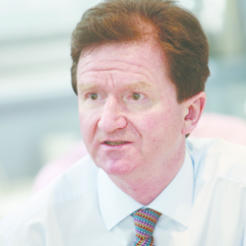The chief executive of the Charity Commission was unable to tell MPs how much money the regulator needs to carry out its statutory duties, despite warning its current budget was not enough.
Sam Younger, chief executive of the Commission appeared yesterday before the Public Accounts Committee to discuss the critical National Audit Office’s report into the body’s fitness to regulate, and once again said that it was struggling with the financial pressures of having its budget cut.
He said: “[Earlier this year] the Public Administration Select Committee said the Commission is being asked to do too much with too little – I think that’s right.”
But he was unable to suggest a figure for how much money was needed to carry out its statutory duties, and said that following the government-wide budget cuts in 2010 the Commission’s board and himself thought that “to try to go about challenging that overwhelming tide of austerity was not something that it was worth us doing”.
He added: “My job is to make sure that the Commission does the best possible job with the resources it has.”
MPs were sceptical that more funding would solve the problems highlighted in the latest NAO report with Fiona Mactaggart telling Younger that when making cuts he “made the wrong hard decisions”.
Board member promises 'radical' change ahead
Appearing alongside Younger was Nazo Moosa, trustee of the Charity Commission, who told MPs that the new board was aware that: “There needs to be incremental as well as radical change.”
The board is currently working on developing a “revised set of indicators” to measure not just the public confidence in the charity sector but also the Commission’s role in that.
She also called for a “broader debate” on the role of the Commission with the need for a “fundamental look at the actual processes the Charity Commission delivers”.
So far a steering committee has been appointed and she said the board is committed to carrying out the work within 12 months.
Progress being made
Younger accepted that there are areas the Commission needed to improve and argued that progress was already being made pointing the increased use of powers in the last six months.
Describing data as a “bugbear” for the Commission, Younger admitted attempts to use it more effectively have been unsuccessful and that the Commission was now bringing in outside help to develop a risk profiling system for charities based on the information it holds.
MPs 'losing patience'
Margaret Hodge, chair of PAC, warned that he committee was “losing patience” with the Commission.
She concluded that “we are really concerned and we would want to return to this before the general election” when the committee will be looking for “evidence of real improvement”.
Moosa assured the committee that work was “in train” told that a new chief executive would hopefully be in place in the spring/summer of 2014 and that until then it “did not make sense” to implement some of the changes it was planning.
Afghan Heroes statutory inquiry
Yesterday Hodge singled out the case of Afghan Heroes an example of the Charity Commission taking too long to act in serious cases.
She said she had recieved a letter from an individual in the summer who was concerned that the Commission did not appear to have acted on warnings about mismanagement of charitable funds, which only spent 4 per cent of its income on charitable purposes. Younger said he was unable to comment on the specifics of the case during yesterday's session.
This morning the Commission sent out a press notice announcing that it opened a statutory inquiry in November.
It has used its powers to restrict the charity's and its trading subsidiaries' bank accounts.
Afghan Heroes was registered in 2009 and in 2012 it had an income of £548,000 and speding of £516,000 - of which £241,000 was spent on generating voluntary income and £233,00 on trading to raise funds.









